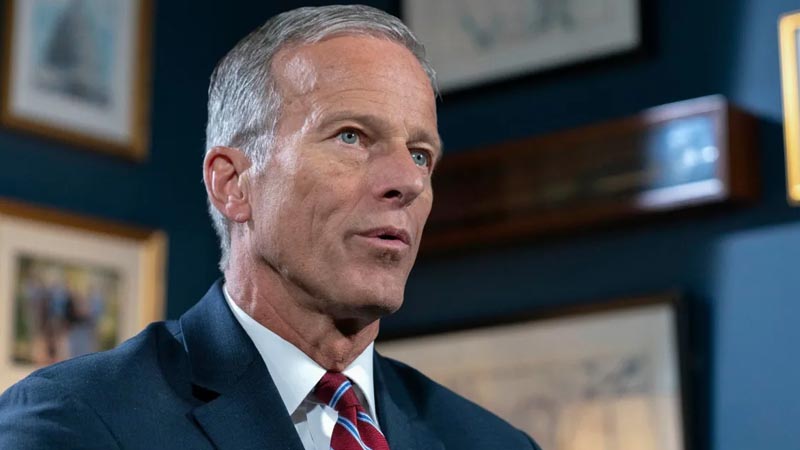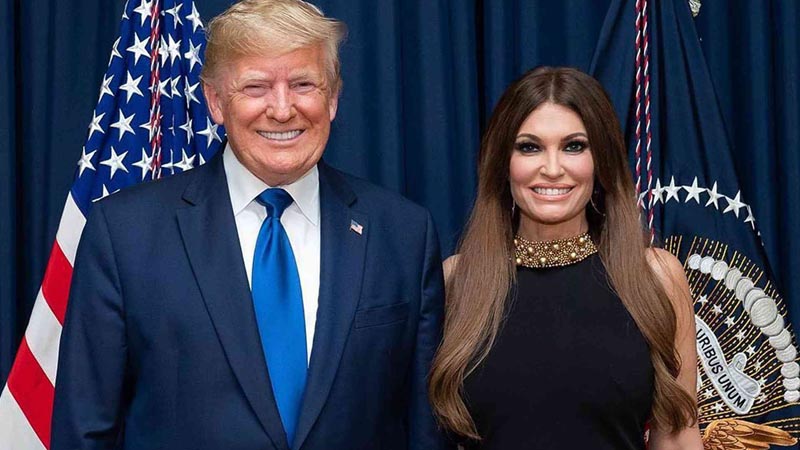“Reconciliation Bill in First 30 Days”: Senate Majority Leader John Thune Plans Major Budget Push for Trump’s Priorities

U.S. Sen. John Thune won an internal election among Republican senators to become the chamber’s next majority. (AP Photo/Jose Luis Magana)
Incoming Senate Majority Leader John Thune (R-SD) has informed his caucus that he plans to push through the first major budget reconciliation bill within the first 30 days of the new Congress, according to a report by Politico. The 119th Congress is set to begin on January 3, 2025, and President-elect Donald Trump is expected to have a long list of priorities that Republicans will need to address.
The budget reconciliation process is crucial for Republicans because it is the only type of legislation that cannot be filibustered in the U.S. Senate. This gives the GOP a strategic advantage in advancing Trump’s priorities, such as reestablishing his 2017 tax cuts, increasing defense spending, funding energy projects, addressing border issues, and pursuing other major initiatives.
However, any provisions included in the package must primarily affect spending, rather than policy. One key obstacle for Republicans is the Senate parliamentarian, who has the authority to rule certain measures “irrelevant to the budget” and prevent them from being included in the reconciliation bill. As Politico noted, “While reconciliation would allow Republicans to pass priorities with no Democratic support, bills that pass under the process are often large and tricky to wrangle.”

House Republican Speaker Mike Johnson (R-LA) has also called for a budget package within the first 100 days of the new Congress, which could further complicate efforts given the thin GOP majority in the House and the requirement for bills to align with the Senate parliamentarian’s guidelines.
One of the major items on the agenda is Trump’s mass deportation plan, which is expected to cost nearly $1 trillion over ten years, according to the American Immigration Council. Republicans could fully fund this initiative through the budget reconciliation process, along with other key items from Trump’s list.
Thune also indicated that significant changes would be made to the Senate’s schedule. Senators should prepare to work on Fridays and potentially weekends, and there will be a stricter approach to voting, with votes no longer held open for hours.
Thune’s announcement sets the stage for a busy start to the new Congress, with Republicans aiming to move quickly on their agenda while navigating potential hurdles in both the Senate and the House.


